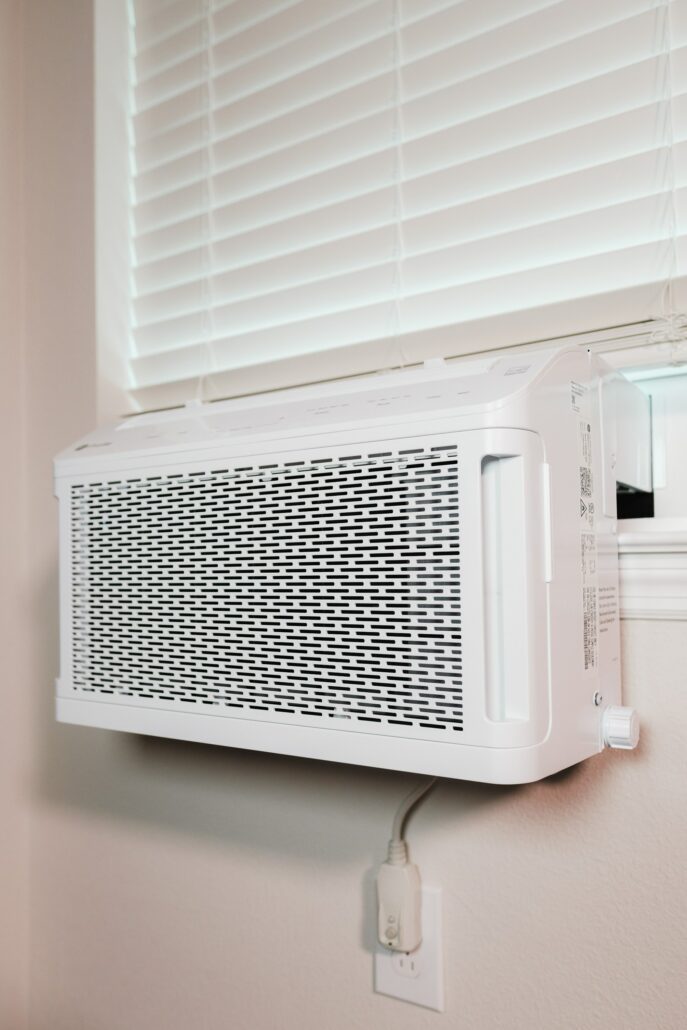Keep Your Home Cool This Summer
Heat waves are becoming increasingly common in various parts of the country, including the west coast. Unfortunately, experts predict that summers will not become any cooler in the foreseeable future. The prolonged exposure to high temperatures poses significant risks, especially for young children and older adults. Enduring extreme heat can also simply make life unbearable. As the challenges posed by rising temperatures are expected to persist, the ability to keep your home cool becomes crucial. Spring cleaning season is the perfect time to think about the impending summer and make changes before temperatures rise.
When temperatures soar, people are willing to go to great lengths to escape the heat. While this may be tolerable for a couple of days, relying on fans and portable air conditioning can substantially increase your electricity expenses. Fortunately, there are alternative measures you can take to keep your home cool. Implementing some low-tech strategies can help homeowners optimize cooling without consuming additional energy.
Have Your HVAC Serviced
It is recommended to have your HVAC (heating, ventilation, and air conditioning) system serviced once a year, and the ideal time for this maintenance is during the spring season. Professional HVAC services typically entail a comprehensive cleaning of system components, inspection of connections and thermostat functionality, lubrication of moving parts, and testing refrigerant pressure and safety controls. Regular maintenance not only enhances the efficiency of your HVAC system but also ensures its safety.
Assess Your AC
Don’t wait for the first heatwave to discover your AC isn’t working properly! Given the recent trend of record-breaking high temperatures in numerous locations, air conditioning has transitioned from a luxury to a necessity. To prepare your home for the summer season, it is important to replace your filters and verify that all components are properly connected and functioning as intended.
Whether you have centralized air conditioning or a smaller unit, save energy by cooling only the areas you are spending time in. Closing doors to spare rooms and guest bedrooms reduces the amount of air your system needs to keep cool, saving money on energy.
Reverse Your Ceiling Fans
You might be unaware that setting your fans to rotate counterclockwise causes the blades to tilt upwards, resulting in a more powerful draft. This simple adjustment can have a significant impact on distributing cool air effectively throughout your home. Spring is a great time to open up your windows and dust off your ceiling fan blades – While you’re up there, make sure the fan is set to run counterclockwise.
Invest in Window Coverings
Temperature control window film is specifically designed to block heat and harmful UV rays while still allowing you to enjoy unobstructed views. It is professionally installed and can significantly reduce the temperature inside your home by nearly 50%. Similar to air conditioning, the installation of window film requires an upfront investment. However, unlike air conditioning, it is a one-time cost that continues to provide savings over time. By reducing heat gain, you can stay cooler and rely less on energy-consuming air conditioning or fans. The same window film also helps to retain heat inside your home during colder months, thereby lowering your winter heating costs as well.
Another practical option is to simply keep blinds and curtains drawn tight. Blackout curtains can be especially good at keeping heat and light from seeping in through your windows.
Check Your Insulation
Even with the best air conditioning unit, the effectiveness can be compromised if cool air escapes from your home. It is crucial to check your insulation and consider hiring a professional for assistance, as the cost savings in energy consumption are likely to justify the expense. A well-insulated home excels at preserving cool air indoors while keeping hot external air out. By ensuring that your walls and attic spaces are adequately insulated, you can enjoy a cooler home during summer and better warmth retention during winter. Consequently, you will rely less on air conditioning and heating, resulting in substantial long-term savings.
You should also assess gaps around doors and windows at least once per year. Inspect your windows and doors for gaps and replace caulking when necessary. Temperature variations can lead to gaps in weatherstripping and even cause hinges to loosen. These gaps not only result in energy loss but also serve as convenient entry points for insects and other pests.
With hotter weather becoming the new norm and record-breaking highs that many of us have never experienced before, it is increasingly crucial to keep ourselves and our homes cool. Implementing changes that help us stay cool without incurring exorbitant energy costs is of utmost importance. While some of these upgrades may require an initial investment, they will prove to be cost-effective in the long run, offering both comfort and monetary savings. Employing energy-saving and heat-reducing features may also enhance the overall value of your home.
Are you house hunting this summer? Check out our Learning Center to get started on your journey with Fairway’s First Team! ☀️



